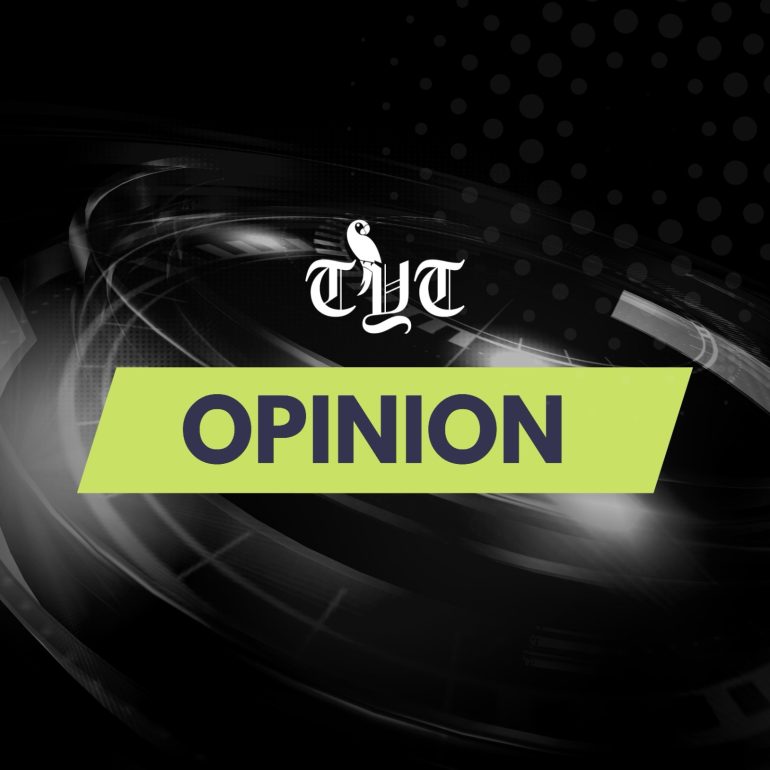By Posi Tubosun
Mo se ìbà àwon Àgbà o.
Nínú Odù mímó Òse Òtúrá (Òsetŭrá):
Wéré ni ejí se ń délé Ayé;
Bí òjò bá rò láròjù, a di àgbàrá;
Àgbàrá ńlá níí ya ebè sí poro oko;
Adífá fún Ìbà tíí se Àkóbí Elédùmarè;
Ìbá Baba, Ìbá Yèyé, Ìbà Olúwo, Ìbà Odùbonà
Ìbà Àràbà n’Ifè, tíí se Baba Eríwo.
I’m saddened that, as a Yorùbá citizen, we keep taking a few positive steps forward and then take major steps backwards in our land, and this occurrence, the appointment of a career pentecostal pastor as the Head of our Ìsèsse institution, is one of such. Appointing not just practitioners, but extreme propagators of destructive foreign religions and cultures to head our Ìsèse institutions is both odiously self-damaging and anachronistic in our journey back to self-discovery in the land of Oótù. The process of self-discovery in Yorubaland has been noticeable with the recognition of Ìsèse public holidays recently. However there were some missteps along the way, like the appointment of Ọba Rasheed, an eccentric foreign religion apologist as the Oluwo of Iwo, and the appointment of many of those witless, discreditable and dishonourable Oba that attended Adeboye’s Redeemed Church recently to publicly announce their knavish condescension to foreign religion – a clear breach of their fiduciary duty as the custodian of the Oótù Ìsèse institution that they swore to serve as a trustee of.
Ọbaship in Yorùbáland is an integral part of our Ìsèse! Our various kingmakers owe it a sense of duty to the land of Oótù in shortlisting eligible Oba, to screen off princes who are likely to pollute our culture for the sake of self-preservation, otherwise we may be setting ourselves up for self-immolation in piecemeal.
In Yorùbáland of Bénin Republic, it would be abominable if Alákétu, Onípópó, Onísábě, Alájàsé (Port-Novo), Alájòwùn, Onípòbé, Onísakété, Onífòyìn, Olóhŭnbé, Onílăshè, or Onísăwùrú should decide to abandon their Ìsèse to “surrender their fiduciary trust” to the foreign Abrahamic religion or culture. It is right to draw the parallel here between this foolishness of handing over our heritage to plunderers who have been indoctrinated to hate it because of their personal inferiority complex, and the folly of Kakanfò Àfònjá that pitched his tent with Salih Jinta (otherwise known as Shehu Alimi) a fulani mercenary cum Islamic cleric. After the death of Shehu Alimi, his son Abdul Salami an ambitious man capitalised on the chain of events thereafter to instigate a revolt that claimed the life of Kakanfò Àfònjá in 1817. Fast forward to 2023, descendants of Usman Dan Fodio is an Emir in Ilorin (Yorùbá soil), and practitioners of Ìsèse are being persecuted. Any lessons learnt?
Can a Christian be allowed to head the Shinto shrine in Japan? Can a Muslim be allowed to head the Buddha temple? Can a Christian be allowed to head a Shariah cultural institution in Saudi Arabia? Or can a council of Imams advise of how to run the Vatican, or, can a muslim or Christian be allowed to manage the jewish state? If the answer to the above is a resounding no, why should a pastor head our own Ìsèse?
Ìrete Ogbè (Ìréntegbè) says:
“Ohun abínibí kìí wù wón,
teni eléni níí yá won lára,
Adífá fún ìwòdèèrè tí yóó se alábărìn eja…”
Aren’t we setting ourselves up for a systemic failure as a people?
In conclusion, it is the responsibility of all right-wing Conservative Yorùbá citizens who are highly influential wherever they are, to henceforth get involved in the process of choosing the custodians of their Ìsèse (ie Obaship) before corrupt pastors and other practitioners of foreign religions hijack the process.
For avoidance of doubt, a comprehensive definition of Ìsèsè is contained in Odù Mímó Ògúndá Òwónrín thus:
Òkún sú nàre-nàre;
Òsà sú lègbe-lègbe;
Aláyé rayé, awo abé ota;
Alásàn ń ràsàn awo ilè odò;
Àwon àgbà ìmùlè wò ìgbèyìn òrò;
Wón rí pé kò sunwòn mó;
Wón fí’run imú dí gbágí ojú;
Won fi’rùngbòn díyà pin-pìn-pin;
A dífá fún ìsèse tíí se olórí orò láyé;
A bù fún Ìsèse tíí s’olórí orò ní’wàrun;
Baba Eni, Iya Eni, Ìsèse Eni ni;
Òrìsà ilé Eni, Ìsèse Eni ni;
Orí Eni, Ìsèse Eni ni;
Ìsèse làá bo n’ífè ká tó bo Ebora.
Christianity, Islam and other foreign cultures, traditions and religions are not part of our own Ìsèse in the land of Oótù.
Ire o.
